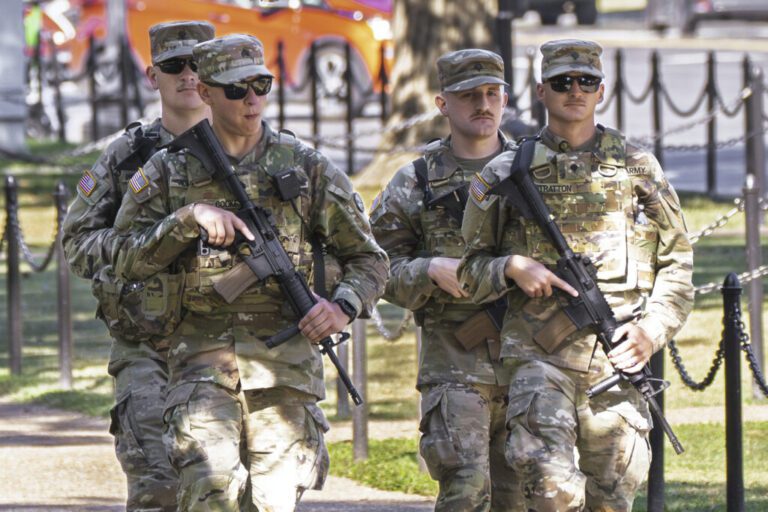Tension in D.C.: Mayor Bowser Responds to Trump’s Law Enforcement Claims
As President Trump intensifies his grip over law enforcement in Washington, D.C., tensions are rising with city leadership, even as crime rates show improvement. Mayor Muriel Bowser has voiced her concerns regarding the president’s approach, suggesting that federal intervention may exacerbate rather than alleviate existing issues.
Rising Tensions
In recent weeks, masked federal agents and National Guard troops have appeared on the streets, which Mayor Bowser asserts is unsettling for the city’s residents. “These forces are putting our communities on edge,” she stated during a press conference, addressing the unsettling presence of federal law enforcement.
Trump’s Federal Authority
President Trump has previously exercised executive authority under the Home Rule Act, a move that allows him to take control of the District’s police and military resources. At a recent Cabinet meeting, senior advisors commended this action. Transportation Secretary Sean Duffy announced plans to federalize oversight of Union Station, a major transport hub, promising to tackle visible issues such as homelessness and crime in the area. He stated, “We’re gonna take it back and drive out the homelessness, we’re gonna drive out the crime.”
A Delicate Balancing Act
Mayor Bowser finds herself in a precarious position. Her constituency largely opposes federal control, yet Trump’s administration holds significant power over D.C.’s resources. “I spoke with the president today,” Mayor Bowser explained. “He appears more knowledgeable about D.C. than during his first term.”
Despite federal intervention, crime rates have seen a decline:
- Carjackings
- Gun violence
- Homicides
According to Bowser, “When these rates go down, neighborhoods feel and are safer.”
Addressing Community Distrust
During her press conference, the mayor noted a visible disconnect between law enforcement and the community, attributing some of this distrust to the presence of masked ICE agents conducting immigration enforcement operations. “What’s not working is a break in trust between police and community,” she remarked, highlighting that these tactics may not be effective in fostering goodwill.
Congressional Dynamics
In light of Republican demands to rescind D.C.’s home-rule powers, Bowser’s ability to navigate the political landscape is further complicated by delayed funding due to congressional appropriations. Nevertheless, she remains optimistic about certain projects. “We will support the president’s $2 billion request to improve infrastructure, especially federal infrastructure in the District,” she stated, reflecting a willingness to collaborate where possible.
Conclusion
As Mayor Bowser continues to advocate for her city while managing the complexities of federal involvement, the narrative surrounding law enforcement in Washington, D.C. remains in flux. With both local leadership and federal authority working to improve the city, the focus will increasingly shift to effective collaboration and community trust.
For more on D.C. politics and law enforcement, you can visit NPR’s coverage on D.C. policy, or explore insights on local crime statistics, offering a deeper dive into the evolving landscape of Washington, D.C.


